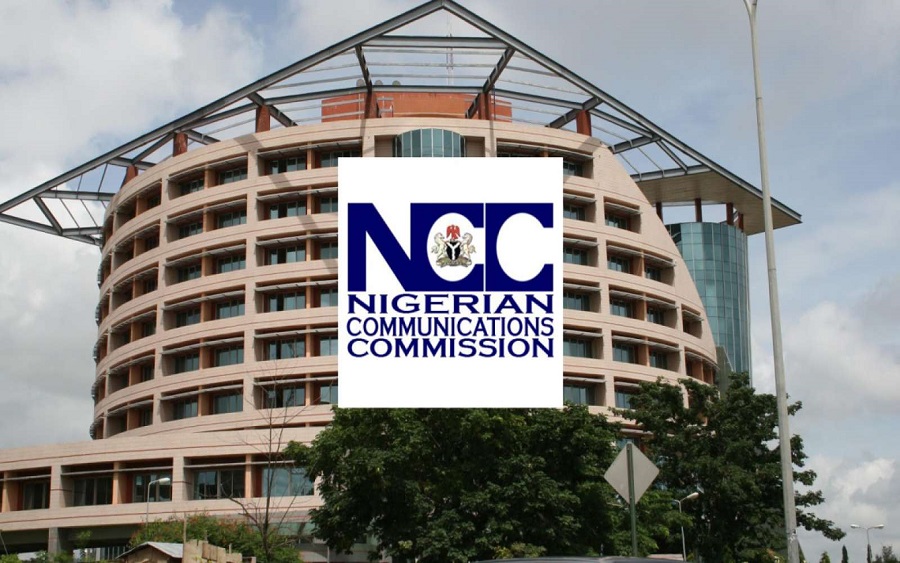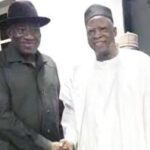Recently, there has been increased agitation by certain prophets of doom, using surreptitious means to try to upstage the tranquility being enjoyed in the telecommunications sector. The cacophony of noises, just like everything Nigerian, started subtly about a fortnight ago, but gradually gathering momentum, and targeting an area considered about the only sane sector of the economy, the Telecommunications sector. In this analysis, MALACHY UZENDU, X-rays the issues and contending forces, passing a verdict that but for the active and committed engagement of the Executive Vice-Chairman, Prof. Umar Garba Dambatta, and his indefatigable team at the Nigerian Communications Commission (NCC), the nation would perhaps be facing rumpus from that sector by now.
The noise which started following steady but astronomical rise in the price of almost everything, except the air we breathe in the country, was stealthily sneaked into the telecommunications sector through a deluge of reports in the media directing attention on the demand by Mobile Network Operators (MNOs) ostensibly to increase tariffs of telecom services nationwide.
On the face of such demand, there appears to be nothing wrong with it. If one analyses the current happenings in the country, the prices of foodstuff domesticated on the lapses of the Ministry of Agriculture, had since spiralled out of control. Prices of gasoline, kerosene(DPK), fuel (AGO), cooking and industrial gas, which is under the purview of the Ministey of Petroleum Resources and its parastatals, had sine gone beyond expectation. Also, the prices of assorted items of purchase being coordinated by the Ministries of Industry, Trade and Investment companies Ministey of Finance, had bagged unprecedented inflationary trend. In the electricity sector, the level of rape of the citizenry by the Distribution companies are better discussed than imagined that Nigerians arguably, rightly believe that the Nigerian Electricity Regulatory Commission (NERC) has transformed to an appendage of the private operators in that sector as hardly would they come up their phantom demand for tariff increases without a justifiable approval by NERC.
In the education and health sectors, being controlled by the Ministies of Education, Health and Labour, there seems to be no hope of every recovering the damage to that sector. Worse is that there is no hope fiben the protracted strike by the Academic Staff Union of Universities (ASUU), of our children, especially the hundreds of thousands of them currenty studying in the Federal universities having the opportunity in the near future of getting back to their classes or graduating. Strike has become a ritual in our federal tertiary institutions, while those charged with bringing decorum in the sector have either abdicated responsibility or are enjoying the slide into anarchy, probably for selfish reasons, which I will delve into in another discourse.
Our political leaders, who are behaving like the proverbial parent laced with anarchy, who chose to look the other way and pretended they are not aware of the negative implications of the negative trend, have further hit our sensibilities to the nardy with the prohibitive cost slammed on the purchase of nomination forms of political office seekers. What is permitted to happen in the political cycle among the parties being regulated by our political leaders, have made them no different from the bandits and terrorists who are gradually entrenchinging the spirit and norms of Niccolo machiavelli, who like the progenitors of Jack the Ripper, have embraced Hobbesian philosophical doctrines.
And so, when the news rent the air that MNOs are plotting to hike tariff, NCC seized the moment to douse the fears being expressed by telecom subscribers on the agitation. The demand being made by the MNOs under the auspices of the Association of Licensed Telecommunications Operators of Nigeria (ALTON), citing high cost of running their operations as the major reason for their proposed tariff hike, is contained in a letter to the Commission.
But proving to be alive to their constitutional responsibilities and consistent with international best practices and established regulatory procedures, the NCC ensures its regulatory activities are guided by regular cost-based and empirical studies to determine appropriate cost (upper and floor price) within which service providers are allowed to charge their subscribers for services delivered.
At all times, just like in the current agitation for tariff increase, the Commission stood its ground on the side or sound reasoning, logic, economic reality and the fear of God, ensuring that any cost is an outcome of transparent studies. They also try to guarantee stability in the sector by guaranteeing that at all times, tariff charges are fair enough as to enhance healthy competition among operators, provide wider choices for the subscribers, as well as ensure sustainability of the Nigerian telecoms industry and happiness of Nigerians and visitors to the country.
The current tarriff regime being administered by the service providers is a product of NCC’s determination both for voice and SMS in the past and as far as the commission is concerned, the forces of demand and supply is constant and does not make prices increase while customer figures are also increasing. To them, aggregate cost should come down as the number of customers move upwards and that has sustained the respect and integrity of the NCC without having any negative impact on their remittances to the Federation Account.
However, while there could be justifiable reasons for MNOs’ demand for tarrif increase, mainly based on the failure of other public agencies to sit up and perform their duties as constitutionally required without inputting their personal benefits into the cost indices, it should be noted that NCC have succeed in so putting up transparency and consistency in the sector that operstors are not allowed to either as an entity or collectively, follow blindly and mindlessly their own concept of cost analysis. At least his, that is not the case for now and Prof. Dambatta must take the kudos for this consistency.
Through NCC’s commitment to engendering healthy competition among the licensees, the cost of services has been democratised and become more and more affordable for Nigerian subscribers. The regulator is even more committed to this cause to ensure subscribers get greater value for money spent on telecom services.
The NCC from the time of its pioneer Executive Vice-Chairman/Chief Executive, Chief Ogbonna Cletus Iromantu, engaged in series of activities to disentangle the Commission from the moribund and epileptic Nigerian Telecommunications Limited (NITEL) bureaucracy, which had, for years, unsatisfactorily carried out its statutory mandate. Chief Ernest Ndukwe, in 1992 crystallise the resolve for result-oriented which he handed over to Engr. Eugene Juwa, who also delivered impactful leadership up to the current leadership of Prof. Umar Garba Danbatta, who has been the most outstanding.
Unlike heads of other government agencies in the country Danbatta not only weathered the several storms that came his way since assuming leadership at the NCC, but also ensured that Nigeria joined the global players pushing through at the frontiers of e-commerce, e-banking, e-agriculture, e-health, e-transportation, e-education, and so on.
Unarguably, the unprecedented growth recorded in the telecoms sector with clean, clear multiplier effect on other sectors of the economy, resulted in consistent sound regulatory regime consolidated over the last 21 years.
Several instances already captured by this writer and others abound but suffice it to state that Prof. Danbatta ensured that the telecoms sector witnessed periodic reviews in terms of providing frameworks, regulations, guidelines and policies which created the enabling environment for the future of telecommunications growth in Nigeria, thus pushing forward NCC’s primary mandate to connect Nigeria and promote universal access to e-activities.
His leadership saw to the NCC better positioning the telecoms operstion as the baseline enabler for the realisation of the Economic Recovery and Growth Plan (ERGP) 2017-2020 of the President Muhammadu Buhari’s government, through NCC’s diversification agenda.
These pilicies positively impacted other sectors of the economy and consequently witnessed phenomenal growth in terms of subscribers’ base, earnings to the government, increase in Gross Domestic Product (GDP), teledensity and increase in foreign direct investments.
Indeed, the Federal Government, through the National Bureau of Statistics (NBS) confirmed how telecoms sector, alongside other sectors of the economy, significantly contributed to taking Nigeria out of the COVID-19 pandemic-induced recession in the country.
Recall that in the first quarter of 2020, the sector contributed 10.88 per cent to Nigeria’s GDP from 8.50 per cent in 2015. Active mobile voice subscribers equally increased from 151 million in 2015 to over 189.3 million as at August, 2021, with a teledensity of 99.18 per cent. Internet subscribers equally grew from 90 million in 2015 to 140.2 million as at August, 2021. Also, broadband penetration has increased from 6 per cent to 41 per cent as at August, 2021, indicating that 78.3 million subscribers are now on broadband networks of Third Generation (3G) and 4G.
Similarly, NCC is committed to driving ICT innovations in the academia and technology innovators and security of the country, leveraging on telecommunications networks. For instance, the Commission has increased the number of operational Emergency Commission Centres (ECCs) to 23 states including the Federal Capital Territory (FCT), Abuja. Available reports also showed that the NCC equally embarked on measures towards regularising activities of all satellite operators, including space station operators as well as earth station operators and issued landing permits to space stations beaming signals over the Nigerian territory to expand services to more locations in Nigeria.
In the past 21 years the socio-economic transformation agenda of the Federal Government through the licensing of infrastructure companies (InfraCos) to provide additional robust broadband infrastructure, specifically with the provision of a Point of Access (PoA) for fibre link each in 774 Local Government Area (LGAs), across the geo-political zones and Lagos.
The NCC through deliberate emphasis on deepening broadband penetration through the issuance of standing directive that all new sites built by mobile network operators (MNOs) must be Long Term Evolution (LTE)-compatible, and enabled the implementation of the harmonised Right of Way (RoW) charges on state and federal governments’ highways at the cost of not more than N145 per linear meter, eliminating multiple taxation and regulations. This, no doubt, had further helped in crashing the cost of utilising GSM services. These are policy drives that have continued to drive down costs and impact positively in the life and well-being of Nigerians.
Even after it too GSM services through the modes up to the spread of 4G/LTE services to 100 per cent of the population with a minimum broadband speed of 1.5 megabit per second (Mbps), the NCC has worked diligently and patiently to ensure the licencing of MANFA and MTN for the commercial deployment of 5G technology to push Nigeria to the modern global digital economic era.
Following the approval of the Federal Government of the deployment of the Fifth Generation (5G) andthe marching order to the Commission by the Honourable Minister of Communications and Digital Economy, Prof. Isa Ali Ibrahim (Pantami) that the deployment must succeed, the NCC has sucveaafully cleared all the hurdle for 5G deployment in the country.
It said roll-out of the 5G will be carried out in phases beginning with major cities in the country “where there is need for high quality broadband.” Accordingly, the NCC will publish an implementation roadmap for the deployment of 5G across the country with service roll-out obligations very soon just as it has issued licences to the two successful bidders to commence operation.
At the moment, Prof. Danbatta is not resting on his oars for robust broadband infrastructure to propel the development of digital economy ecosystem.
If only other regulators should take a cue from NCC, the current spiralling inflation would take a back seat. With the achievements which the NCC have continued to record, there is no dispute on the myriads of laurels so far garnered by Prof. Danbatta and his team. What Nigeria needs now are men of conscience and drive like Danbatta and there is no better time than now.



